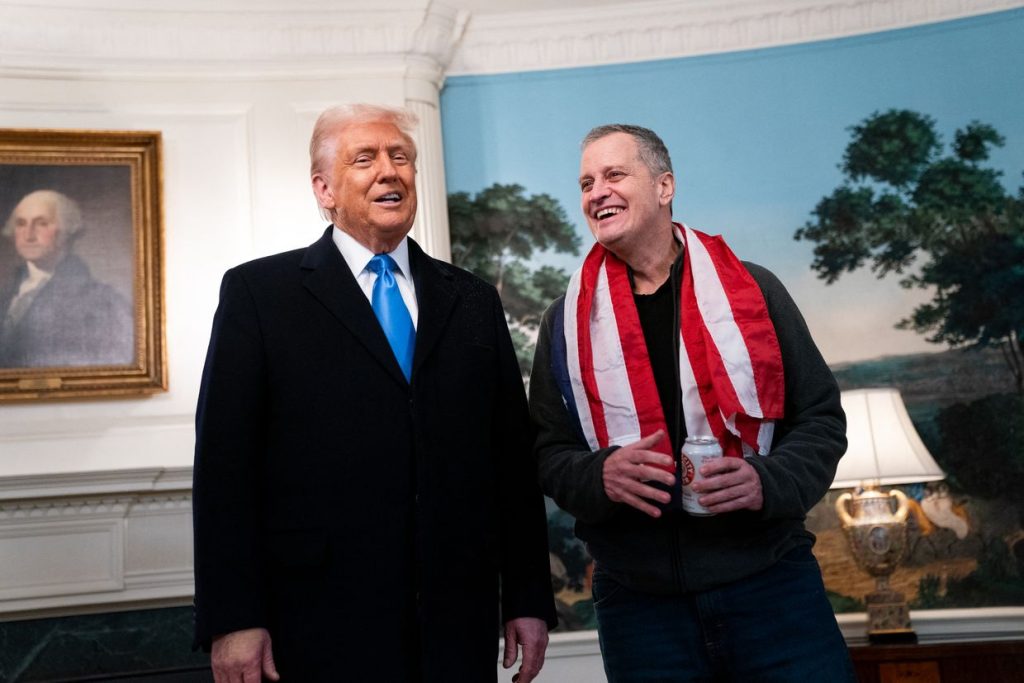Trump and Fogel: A Meeting of Hope
On February 11, U.S. President Donald Trump welcomed Marc Fogel, a schoolteacher from the United States, to the White House. Fogel’s presence at the presidential residence was a testament to the diplomatic efforts that led to his release from a Russian prison, where he had been held since his arrest at a Russian airport in 2021. The arrest was due to Fogel possessing medical marijuana, a substance that is legal in some parts of the U.S. but not in Russia. Trump’s administration, under the leadership of his special envoy to the Middle East, Steve Witkoff, negotiated the release, marking a significant diplomatic achievement. When asked if Fogel’s release could be a step toward peace in Ukraine, Trump responded optimistically, suggesting that Fogel’s case could play a crucial role in ending the ongoing conflict. "There’s good will in terms of the war," Trump said, adding, "You (Fogel) could be a big part of it, actually, because it could be a big, important part of getting the war over with Ukraine."
A Fair and Reasonable Deal?
Trump’s remarks about the deal’s fairness and reasonableness have raised some questions. When queried by a journalist about what Russia received in return for Fogel’s release, Trump downplayed the exchange, stating, "Not much, no. We were treated very nicely by Russia, actually. I hope that’s the beginning of a relationship where we can end that war." This response has sparked curiosity and speculation, as the details of the agreement remain undisclosed. The president’s confident tone, however, suggests a positive outlook on future diplomatic interactions with Russia. Trump also hinted at another release the following day, adding another layer of intrigue to the ongoing negotiations. This sequence of events could indicate a broader effort to ease tensions and foster dialogue between the two nations.
The Role of Steve Witkoff
Steve Witkoff, Trump’s special envoy to the Middle East, played a pivotal role in Fogel’s release. Witkoff personally flew Fogel out of Russia on his private plane, marking the first known visit of a U.S. official to Moscow since 2021. This gesture underscores the personal and diplomatic significance of the case. The U.S. government classified Fogel as "unjustly detained" in December 2024, which intensified the diplomatic efforts to secure his freedom. Fogel’s family had lobbied hard for this designation after he was excluded from a high-profile prisoner swap in August 2024 that freed Wall Street Journal reporter Evan Gershkovich and former Marine Paul Whelan, who was a corporate security executive. The classification as "unjustly detained" provided a legal and diplomatic framework for the U.S. to advocate for Fogel’s release more vigorously.
Ukraine: A Potential Russian Territory?
In a surprising and somewhat contentious statement, Trump suggested that Ukraine might one day become Russian. "They (Ukraine) may make a deal. They may not make a deal… But we’re going to have all this money in (Ukraine) and I say, I want it back," he said. This comment has been met with mixed reactions, as it implies a conditional approach to the Ukraine crisis. Critics argue that such statements undermine the sovereignty and independence of Ukraine, while supporters see it as a pragmatic approach to resolving the conflict. Trump’s announcement of a $500 billion rare earth "agreement" with Ukraine further complicates the situation, as it raises questions about the economic and political motivations behind the U.S.’s involvement in the region.
Russia’s Stance on Prisoner Exchanges
Russian Deputy Foreign Minister Sergei Ryabkov met with U.S. Ambassador to Moscow Lynne Tracy just hours before Fogel’s release. In December 2024, Ryabkov had expressed Russia’s openness to further prisoner exchanges with the U.S. This willingness to negotiate could be a sign of thawing relations between the two countries, despite the ongoing tensions in Ukraine. The recent releases and the potential for more exchanges suggest that both sides are exploring diplomatic avenues to resolve their differences. However, the U.S. has frequently denounced the arrests of U.S. nationals in Russia, many of which are seen as politically motivated. The complexity of these cases and the broader geopolitical context make any progress in prisoner exchanges significant and noteworthy.
The Broader Implications
Fogel’s release and the diplomatic efforts surrounding it are part of a larger narrative of international relations and conflict resolution. The U.S. and Russia have a history of using prisoner exchanges as a tool to manage and sometimes improve bilateral relations. While the details of the Fogel deal remain unclear, it is evident that both nations are open to dialogue and negotiation. Trump’s pledge to broker a swift end to the Russia-Ukraine war, coupled with his recent interactions with Russian officials, indicates a renewed focus on diplomatic solutions. However, the path to peace in Ukraine is fraught with challenges, including the complex geopolitics, deep-seated historical grievances, and the ongoing military conflict. As the international community watches, the hope is that these small steps will lead to a broader and more lasting peace.












